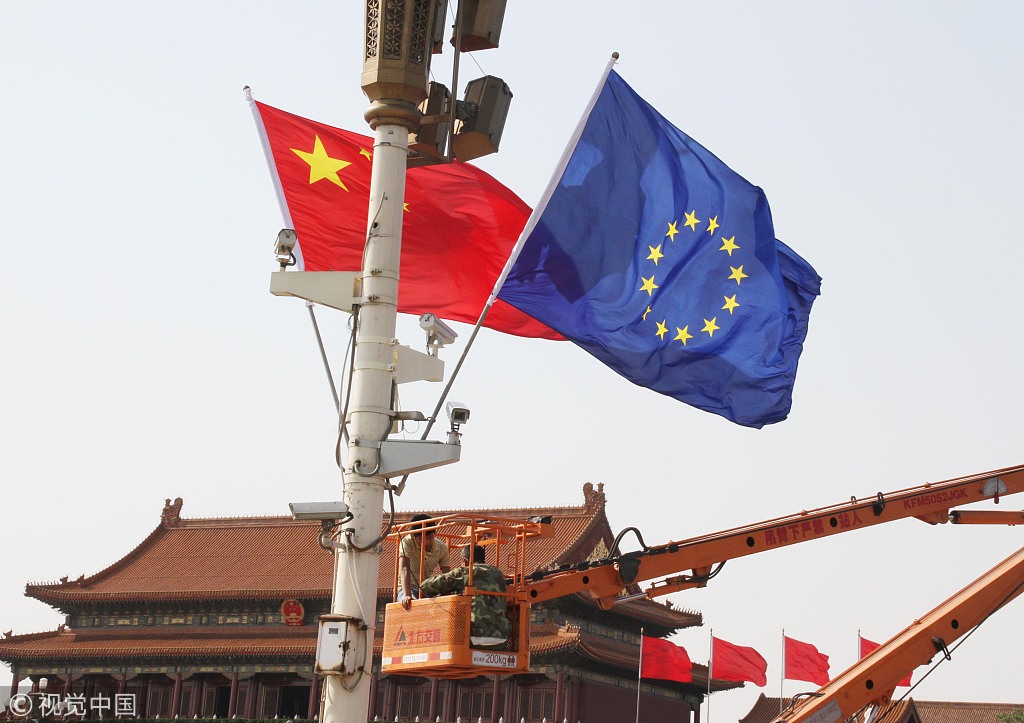State visits to 3 nations boost ties
By Mehmood Ul Hassan Khan | China Daily Global | Updated: 2024-05-27 09:02

President Xi Jinping's state visits to France, Serbia and Hungary between May 5 and 10, while further strengthening the scope, pace, utility and diversity of bilateral relations with these countries, affirm China-European Union cooperation for achieving win-win propositions, transcontinental connectivity, better political understanding and mutually befitting socioeconomic coordination.
In France, Xi and French President Emmanuel Macron held in-depth exchanges and reached agreements with European Commission President Ursula Von der Leyen on China-EU relations and practical approaches to solving the Ukraine and Mideast conflicts. In Serbia, Xi unveiled practical measures to support building a joint community with a shared future in the new era which he and Serbian President Aleksandar Vucic had agreed upon.
In Hungary, the meetings with President Tamas Sulyok and Prime Minister Viktor Orban established a China-Hungary all-weather comprehensive strategic partnership for the new era, underlined China-EU comprehensive strategic partnership, and reaffirmed the importance of working for global security and peace and safeguarding the international system with the United Nations at its core.
The visits are the start of a new era of true multiculturalism and multilateral global politics, just and fair economic globalization, equitable international cooperation that avoids divisions, destructions and demoralizing others' national narratives among different sociopolitical systems and governance models.
They also amount to reawakening of Europe's true essence of political autonomy, economic independence and diplomatic free will from the forced ideologies, protectionism and bloc mentality of a superpower. They portend the end of delinking doctrine, and to jointly gearing toward greater socioeconomic and industrial connections to overcome looming threats of high inflation, economic stagnation, demise of qualitative industrialization and investments. Naturally French President Macron's famous saying that Europe is mortal and needs readjustments upholds the key of Europe's success in international affairs and channels of productivity.
Also, the visits reflect China's openness, belief in peaceful coexistence, provision of opportunities to others with its unique approach to modernization, and true persuasions of Xi's Global Development Initiative, Global Security Initiative and Global Civilization Initiative in promoting spirits of true globalization, international law-based global governance, and sustainable and common security for all countries alike.
As was put by Foreign Minister Wang Yi in a press briefing, Xi's visits are full of friendship and fraternity, enhancing mutual trust, boosting confidence and charting the course for the future.
The mutual consensuses of Xi with other state leaders on further strengthening bilateral relations, tapping the broad potential of mutually beneficial cooperation and acceleration of people-to-people exchanges, and building of greater consensus on global cooperation for a shared future of humanity, plus the dozens of agreements on specific fields, have further brightened prospects for common and sustainable prosperity and security, welcomed across the board by all including the business community and investors.
Furthermore, Xi's trilateral meeting with Macron and Von der Leyen simply upheld the Chinese wisdom of geoeconomics, joint development, international cooperation and firm belief in constructive dialogue, diplomacy and political determination to resolve the emerging geopolitical issues. Responding to Xi's messages, Von der Leyen expressed her wish for EU to work with China in the spirit of mutual respect, seek common ground despite differences, enhance mutual trust, avoid misunderstanding, jointly uphold the international order based on international law, and promote world peace, security and prosperity.
Contrary to claims of some Western media outlets and politicians that Xi's visit causes division between the European Union and the United States, Xi's proposals for jointly working for a multipolar world and preventing a new Cold War or bloc confrontation are essential for global peace, stability and harmony in an equal and orderly multipolar world.
The leaders' joint statements — especially that with France — also reflect commonalities of purpose to achieve peace in Europe and the Middle East. On the Ukraine crisis, they clarified and highlighted China's constructive impartiality and continuous peaceful role in the ongoing Russia-Ukraine conflict, stressed the need to jointly oppose spillover and escalation of the fighting, create conditions for peace talks, which go in line with Chinese efforts to facilitate talks for peace all along.
Xi's principal stance on the Israel-Palestine conflict won more hearts and souls as China and the EU share many important commonalities on the question of Palestine. China is ready to work with the EU to support a more broad-based, authoritative and effective international peace conference to be held as quickly as possible to set a timetable and a road map for the two-State solution, and to promote comprehensive, just and lasting settlement of the Palestinian question at an early date.
In summary, Xi's visit to Europe in early May again demonstrates China's will for friendship and opportunities of growth for other countries, China's wisdom for and contribution to global peace and development, and China's increasingly significant role as a responsible major power.
The author is President of Pak-China Corridor of Knowledge and Executive Director of the Center for South and International Studies (CSAIS) in Islamabad.
























